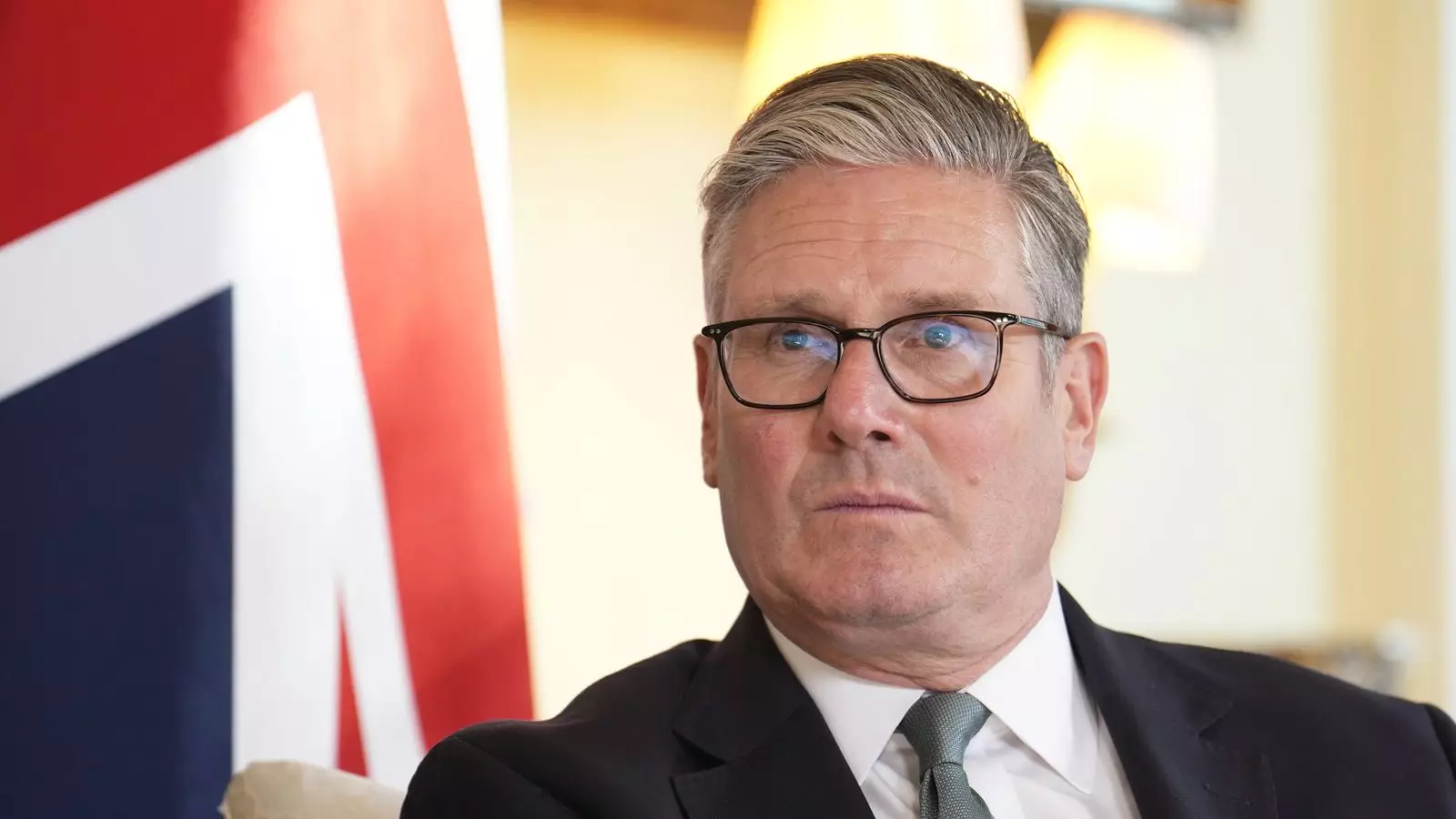In an age characterized by unpredictability, the recent military strikes on Iranian nuclear facilities by the United States underscore the precarious balance of power in the Middle East. Sir Keir Starmer’s declaration that stability in the region is paramount takes on an even more significant meaning in light of these developments. The conflict zones, often teetering on the brink, emphasize how pivotal diplomacy should be in today’s global political arena. It is a moment that calls for introspection about whether aggressive military actions foster security or merely escalate tensions that can lead to wider conflicts.
Starmer’s Call for Diplomacy: A Step in the Right Direction
Sir Keir Starmer’s insistence on diplomacy as a primary tool for conflict resolution resonates with many who see the futility of aggressiveness leading to a genuine solution. In his statements urging Iran to “return to the negotiating table,” one senses an urgency that transcends mere political dialogue; it is an appeal to pragmatism. This approach reflects a core principle of center-left liberalism: that engagement, instead of confrontation, can cultivate an environment where diplomacy flourishes. However, it remains troubling that despite this call, the US opted for a military solution first, introducing an element of chaos into an already delicate situation.
The Risks of Escalation: A Global Perspective
As Sir Keir warned of a “real risk of escalation,” one cannot overlook the broader implications of such military action. The United Nations Secretary-General Antonio Guterres expressed his grave concerns regarding the motive behind these strikes, framing them as a “dangerous escalation.” This is not mere rhetoric; the world has witnessed how local conflicts can spiral into global crises. The stakes are high—countries caught in the crossfire and geopolitical chess games might suffer, but the greatest cost is the ongoing human toll and instability that these decisions create.
Trump’s Bruising Triumph: A Worrisome Narrative
President Donald Trump’s brazen celebration of the US strikes—boasting of the “complete and full obliteration” of Iranian nuclear sites—reflects a dangerous narrative that glorifies military might. His rhetoric not only highlights a stark departure from diplomatic dialogue; it endorses a philosophy where power indeed trumps reason. This mentality does not paint a promising picture for international relations, where diplomacy is rendered secondary to force. It invites further retaliation and justifies a vicious cycle that proves detrimental to peace.
Iran’s Response: The Cycle of Retaliation
In response to the US strikes, Iranian Foreign Minister Abbas Araghchi emphasized the country’s intent to “reserve all options” for retaliation, marking the emergence of a potentially explosive situation. Statements of this nature fuel fears of indirect conflicts escalating into direct confrontations. The concept of “everlasting consequences” should act as a stern warning to all stakeholders involved, suggesting that one act of aggression can set off a chain reaction that reshapes alliances, retaliatory strikes, and even redraws the geopolitical map.
The Balance of Power and Responsibility
The remarks from Israeli Prime Minister Benjamin Netanyahu praising the US strikes evoke deep concern about how alliances are constructed in a crisis. They indicate how easily political expediency can overshadow long-term peace-building efforts. Netanyahu’s commendation illustrates a willingness—shared by some—that prioritizes short-term national interests over collective global stability. The increasing entanglement of regional and international powers complicates the prospect for meaningful dialogue and sustained peace, which is vital in regions fraught with historical grievances and ongoing conflict.
The Path Forward: Choosing Engagement Over Confrontation
Ultimately, as we reflect on the current trajectory of US-Iran relations and the broader Middle Eastern landscape, the dire need for a graceful pivot back to diplomacy cannot be overstated. The stakes are too high for blind adherence to military solutions that yield immediate gratification at the expense of long-term stability. The voices calling for reasoned compromise must rise above the cacophony of conflict. Only through sustained dialogue can we hope to bridge divides and nurture an environment fostering lasting security and cooperation. The potential for a better tomorrow lies in our ability to seek understanding over animosity, and to opt for communication rather than compulsion.

